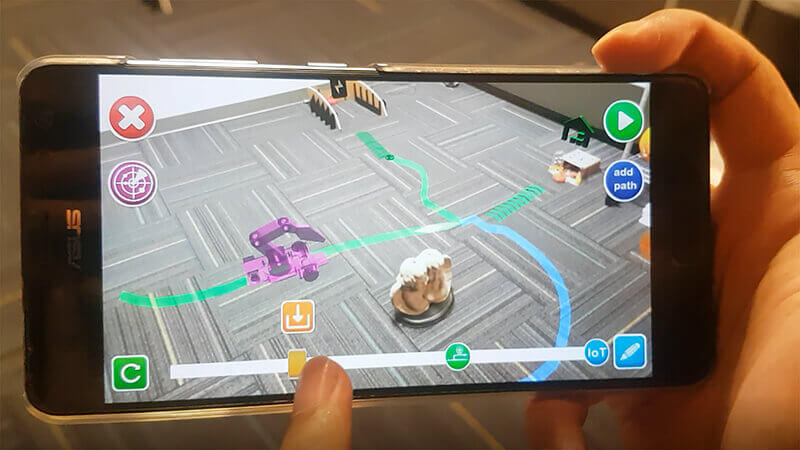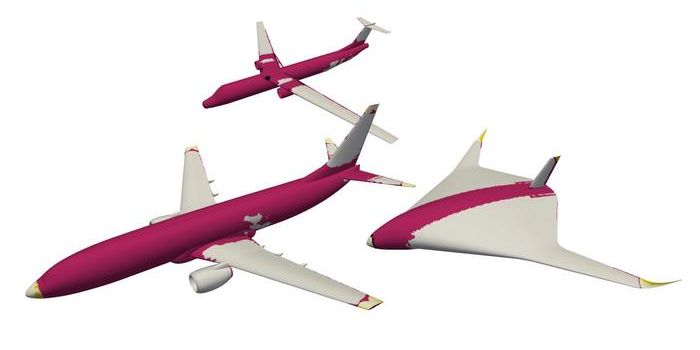Your Phone Can Become a Robot
Imagine a world where any factory worker could program low-cost robots to help with manufacturing and increase worker productivity?
Well recent research at Purdue University using a grant from the National Science Foundation's Future of Work at the Human-Technology Frontier program, can make this dream a reality and possibly allow factory workers to take on more complex tasks while and factories could increase their variety of products. The program is advancing research on human-computer interactions and collaboration with tomorrow’s robots.
A smartphone app allows a user to plan a task for a robot to perform. The robot carries out the task automatically once the phone is loaded onto its docking station. (Purdue University image/C Design Lab)
Specifically, an easily-programmable prototype smartphone app was recently developed that allows a user to order any robot to perform a mundane activity. For example, the robot could be programed to take care of household chores like watering the plants, vacuuming, or transporting objects.
"Smaller companies can't afford software programmers or expensive mobile robots," said Karthik Ramani, Purdue's Donald W. Feddersen Professor of Mechanical Engineering. "We've made it to where they can do the programming themselves, dramatically bringing down the costs of building and programming mobile robots," he said.
Essentially, the phone application serves as both the eyes and brain for the robot, controlling navigations and tasks.
"As long as the phone is in the docking station, it is the robot," Ramani said. "Whatever you move about and do is what the robot will do."
A network called the “Internet of Things” can give the phone power to execute a task involving wireless interaction with a robot. Simply, the user scans a QR code of that object or machine while programming building upon "simultaneous localization and mapping”—algorithms that are also used in self-driving cars and drones.
"We don't undervalue the human. Our goal is for everyone to be able to program robots, and for humans and robots to collaborate with each other," Ramani said.
Source: Purdue University









